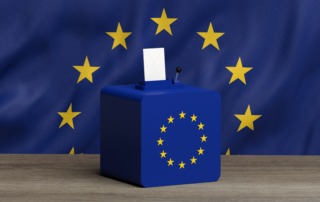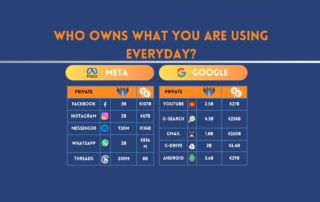The Threat of AI-Generated Disinformation to European Elections and Democracy
In view of the elections that will be held in 2024 in the EU and other parts of the world including the US and UK, there are various challenges to democratic processes as technological advancements are on the rise. It is argued that electoral periods and times of political crisis serve as fertile ground for the production and dissemination of AI-generated content, heightening concerns about the impact on public perception and democratic processes. Recent instances have demonstrated the alarming potential of AI to enable the production of deceptive narratives, with such disinformation finding [...]
AI Hallucination: When AI Makes Things Up
The word “hallucinate” was announced as the word of the year by the Cambridge Dictionary in 2023. It means “to seem to see, hear, feel, or smell something that does not exist, usually because of a health condition or because you have taken a drug”. The term "hallucination" originates from the Latin word "alucinari," meaning to wander in the mind. Yet, the Cambridge Dictionary added another definition for the word that signifies the emergence of a new phenomenon: “When an artificial intelligence hallucinates, it produces false information”. This indicates that AI may have [...]
The Relevance of Chomsky’s Media Theory in Today’s Digital Landscape: Media Ownership
In an era dominated by social media and big tech giants, the concentration of media ownership has become more important than ever. The infographic above depicts the ownership landscape of major platforms and reveals an interesting truth that media control lies in the hands of a few, steering the narratives that reach billions of users worldwide. This phenomenon echoes the sentiments expressed by the famous linguist and philosopher Noam Chomsky in his ground-breaking media theory, specifically his first filter of the “Five Filters of the Mass Media,” the ownership. Chomsky’s media theory, often referred [...]
Data Literacy in the Age of Datafication: A Package to Understand How Digital Technology Treats Us
The complexity of technology, coupled with the emergence of datafication, presents new challenges for society to understand how the world works. Artificial intelligence and big data are just a few examples of the advanced technologies we have to deal with. However, both show the same trend, which is the increasingly important role of data in decision-making. Decision-making is now also automated. This process relies on technologies such as deep learning and the availability of large, real-time data to provide insight, and new knowledge to make policies. One of the easiest examples of the datafication [...]
Using Media Literacy to Fight Digital Fake News in Later Life: A Mission Impossible?
Media Literacy Training for Seniors to Fight Fake News The European Commission defines disinformation as “false or misleading content that is spread with an intention to deceive or secure economic or political gain,” whereas misinformation refers to the same kind of content shared without harmful intention, regardless of its consequences. Disinformation is commonly referred to as ‘fake news,’ and it seriously threatens the credibility of information sources and causes public harm on many layers. Media literacy training functions as a strong instrument used to combat the spread of false information by empowering citizens [...]
Media in the global learning crises and pandemia
By Tapio Varis, Professor Emeritus To be published in 2021 by “Media. Information. Communication” (MIC), Moscow Pedagogical State University, http://mic.org.ru/en/ The world is facing serious socio-economic impact as the consequence of the pandemic. The global situation is also challenging the media and communication systems. The United Nations has warned of education catastrophe and recommends that preventing a learning crisis from becoming a generational catastrophe requires urgent action from all: “Education is not only a fundamental human right. It is an enabling right with direct impact on the realization of all other human rights. [...]
Mapping Media Literacy Across Europe
As the skills of being able to readily critical assess and interact with the media continues to grow in importance a new report, Mapping Media Literacy Practices and Actions, from the European Audiovisual Observatory has been released to document the measures being taken at national and European levels to nurture and promote media literacy competencies.
Monitoring Media Pluralism and Media Literacy Across Europe, 2016
EAVI's Paolo Celot attended the The Centre for Media Pluralism and Media Freedom's workshop on media literacy at the European University Institute in Florence on November 3rd, 2016













































































































































































